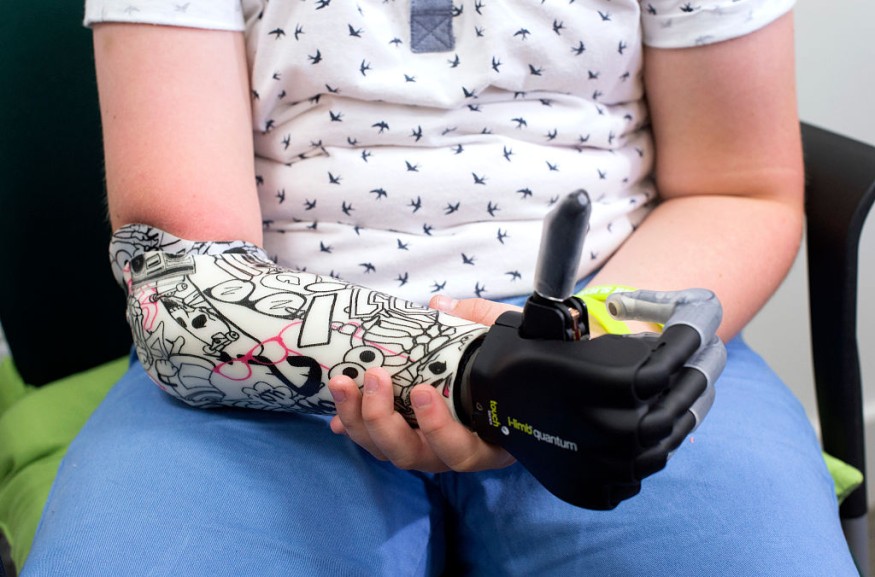Mohammed Sideeq is a four-year-old boy from Pakistan who lost his arm in an accident last year. Now, he became the youngest person to receive a multi-grip bionic arm in the world.
Initially, doctors were hesitant to design a bionic arm for his age as it has never been done before. Bionic arms are prosthetic limbs that the mind can control, and no one has ever had a bionic arm for such a young age. However, the boy's determination moved the doctors to attempt the impossible.

Real-Life Astro Boy Gets Bionic Arm
According to Arab News, Sideeq lost his arm last December in an accident that involved a fodder cutting machine. Sideeq's father, who was not home at that time, told the news outlet that his wife just fainted when she saw her son coming home with a severed right arm.
It was the boy's uncle living in a nearby hospital in Charsadda city in northwestern Pakistan, who helped Sideeq. However, the doctors said that they could not help the boy, so the family had to take him to a hospital 50 kilometers away from home, where surgeons tried to save the severed arm but to no avail.
Doctors cut the boy's arm from the body to save his life. The parents were worried that there would be no hope for them to afford a prosthetic arm for their son.
However, after several months, some friends connected them to BIONIKS, a startup company for prosthetics and orthotics based in Karachi. The company reluctantly agreed to design the bionic arm since the youngest people who received such prosthetic limbs were both eight-year-olds from the U.S. and the U.K.
BIONIKS co-founder Anas Niaz told Arab News that no one has ever made a bionic arm for such a young age. The task is nearly impossible, but the young boy's determination motivated the team of doctors to design the multi-grip bionic arm. Since it would cost $1,800 (300,000 rupees), BIONIKS helped the family look for donors.
Last week, Sideeq became the youngest person to have a bionic limb after doctors fitted him with one. It was hard for him to control the bionic arm with his brain at first, but later on, he learned how to use it. Now, he can use his bionic arm to button his shirt and ride his bicycle, which brought tears of joy to his mother and made his father happy.
How Bionic Arm Works
The World Health Organization estimated that around 30 million people around the world would need prosthetic limbs. However, fewer than 20% of them have access to it as they tend to be costly, heavy, and limiting or inhibiting movement.
Over the years, prosthetic limbs have improved. Many are now venturing in bionic limbs to give amputees a better chance of living as they used to be.
Open Bionics explained that a bionic arm works by picking up signals from the muscles of the user. Special sensors from the bionic arm detect tiny naturally generated electric signals coming from the user's residual limb.
The bionic arm then converts these signals into intuitive and proportional bionic hand movements, just like how they would move their arms. Users can control the bionic arm by tensing the same muscles to open and close a biological hand.
For instance, a bionic arm can perform grip reflexes by imagining flexing the wrist inwards while pulling the fingers into the hand. For opening the hand, users only imagine extending the wrist at an outstretched palm.
Check out more news and information on Bionic Prosthetic in Science Times.












